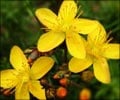A collaborative study has found that a natural compound from magnolia cones has the ability to block an elusive pathway for cancer growth. This compound is found in Japanese and Chinese herbs.
Dr. Jack Arbiser of Emory University School of Medicine joined forces with Dr. David Foster of Hunter College of the City University of New York to study how the compound honokiol works."Knowing more about how honokiol works will tell us what kinds of cancer to go after. We found that it is particularly potent against tumours with activated Ras," says Arbiser, who is an associate professor of dermatology.
A research article in the journal Clinical Cancer Research says that Ras refers to a family of genes whose mutation stimulates the growth of several types of cancers.
It further states that the Ras family, though mutated in around a third of human cancers, is considered by medicinal chemists to be an intractable target.
In their study report, the researchers write that honokiol's properties may make it useful in combination with other anti-tumour drugs, as blocking Ras activation may prevent tumours from escaping the effects of the medications.
"Honokiol could be effective as a way to make tumors more sensitive to traditional chemotherapy," Arbiser says.
Advertisement
They have found that, in breast cancer cell lines, honoliol may prevent Ras from turning on an enzyme called phospholipase D, which allows cancer cells to stay alive when ordinary cells would die.
Advertisement
Emory University is in the process of licensing honokiol and related compounds so that they can be tested in people in co-operation with industry partners.
Source-ANI
RAS/N














